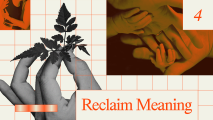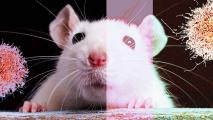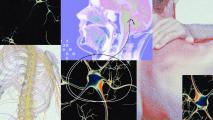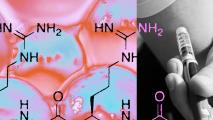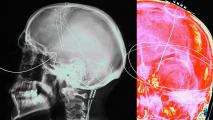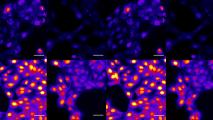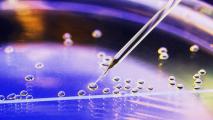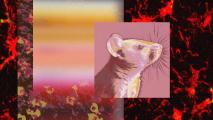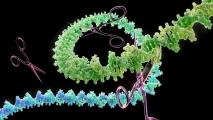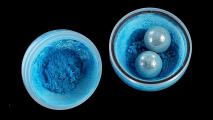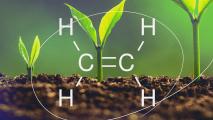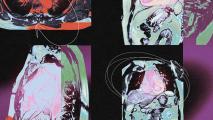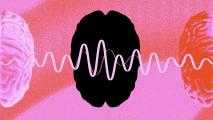
Biotech
Human history has been all but defined by death and disease, plague and pandemic. Advancements in 20th century medicine changed all of that. Now advancements in 21st century medicine promise to go even further. Could we bring about an end to disease? Reverse aging? Give hearing to the deaf and sight to the blind? The answer may be yes. And soon.
More
Study: chronic pain’s root cause could be a process in the brain
Understanding that chronic back pain originates from within the brain could lead to quicker recovery, a new study finds.
Neurosoft CEO says new brain implant is “basically 1,000 times softer” than anything on the market
Swiss startup Neurosoft’s flexible brain implant could give us a better way to analyze and stimulate the brain.
Bad sleep worsens pain. Researchers may have discovered why.
Inadequate sleep worsens pain, which makes it difficult to sleep. This cycle may stem from disruptions to the body’s endocannabinoid system.
A new hydrogel offers the hope of ending daily injections for diabetes
Type-2 diabetes often involves an intense and exhausting treatment burden, with many injections over many days. That might be set to change.
Zapping injured brains can improve cognition and memory
The lasting symptoms of a traumatic brain injury (TBI) can be treated with deep brain stimulation, according to a first-of-its kind trial.
Move over, agony aunt: study finds ChatGPT gives better advice than professional columnists
Researcher found that people preferred the AI-generated responses over those given by a professional advice columnist, and couldn’t tell which was which.
Lidocaine makes cancer cells self-destruct, study finds
Lidocaine, a common local anesthetic, activates proteins that cause certain types of cancer cells to self-destruct.
Stem cell injections could be the key to curing MS
From promising stem cell therapies to EBV vaccines, researchers are closer than ever to finding a cure for MS.
How language and social status change the developing brain
Research shows that a child’s early environment and socioeconomic status (SES) impact their language development and processing skills.
Cholesterol drug suggests new way to treat Alzheimer’s
A cholesterol drug that reduced brain damage in mice could reveal a new approach to treating Alzheimer’s disease in people.
Search algorithm reveals nearly 200 new kinds of CRISPR systems
Researchers have discovered rare new CRISPR systems that have a range of functions and could enable gene editing, diagnostics, and more.
A new study reveals we can no longer tell AI-generated faces from real human faces
Looking at a face without a life.
Biggest science prize in history aims to extend human healthspan by a decade
Do humans have an ethical obligation to “die young”? Maybe not in the way you think, says bioethicist Raiany Romanni.
Grinding scientists: Mechanochemistry could revolutionize the creation of new materials
Like a kitchen mortar and pestle, mechanochemistry harnesses ball milling to create chemical compounds, simpler, and faster than traditional methods.
First anti-aging drug for dogs nears approval
The FDA is a major step closer to approving biotech company Loyal’s LOY-001, the first anti-aging drug for dogs.
Exposing plants to an unusual chemical early on may bolster their growth and help feed the world
“Priming” plants by exposing them to certain chemicals while they’re seeds can affect their growth later in life.
Australia’s 30-year quest to unlock an ancient painkiller
A crocodile attack led to a 30-year partnership to develop a painkiller based on the Nyikina Mangala people’s traditional knowledge.
Experimental drug cuts heart disease risk factor by 96%
Eli Lilly’s experimental drug lepodisiran reduced blood levels of lipoprotein(a) by up to 96% in a small trial.
Human brains have a remarkable ability to rewire themselves following injury
Every brain injury is unique, as is every person’s path to recovery. A concussion specialist explains the science behind rehabilitation and recovery.
New brain decoder system offers hope for communicating by thought alone
Is this another step towards telepathy?
Subscribe to the newsletter



